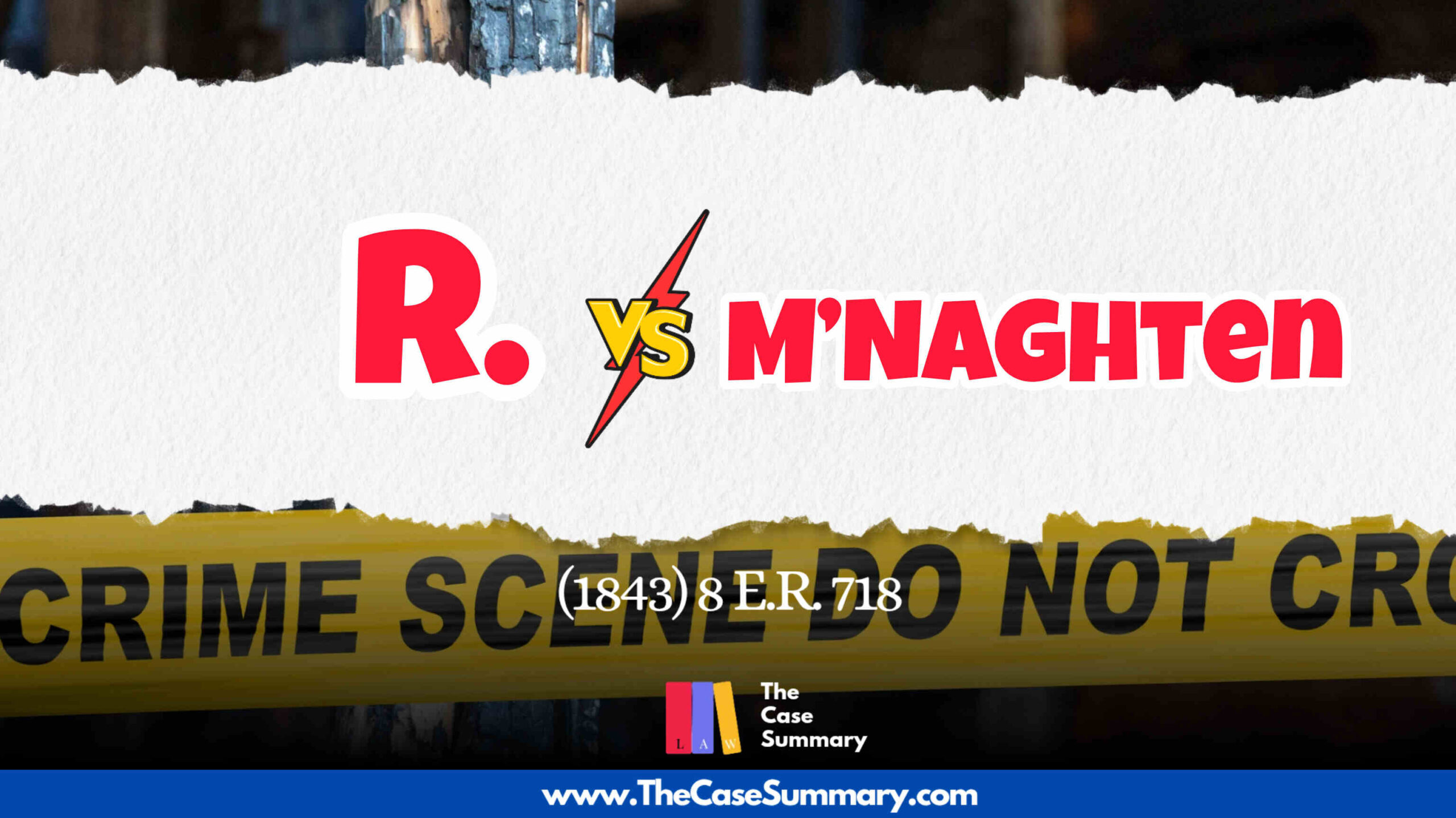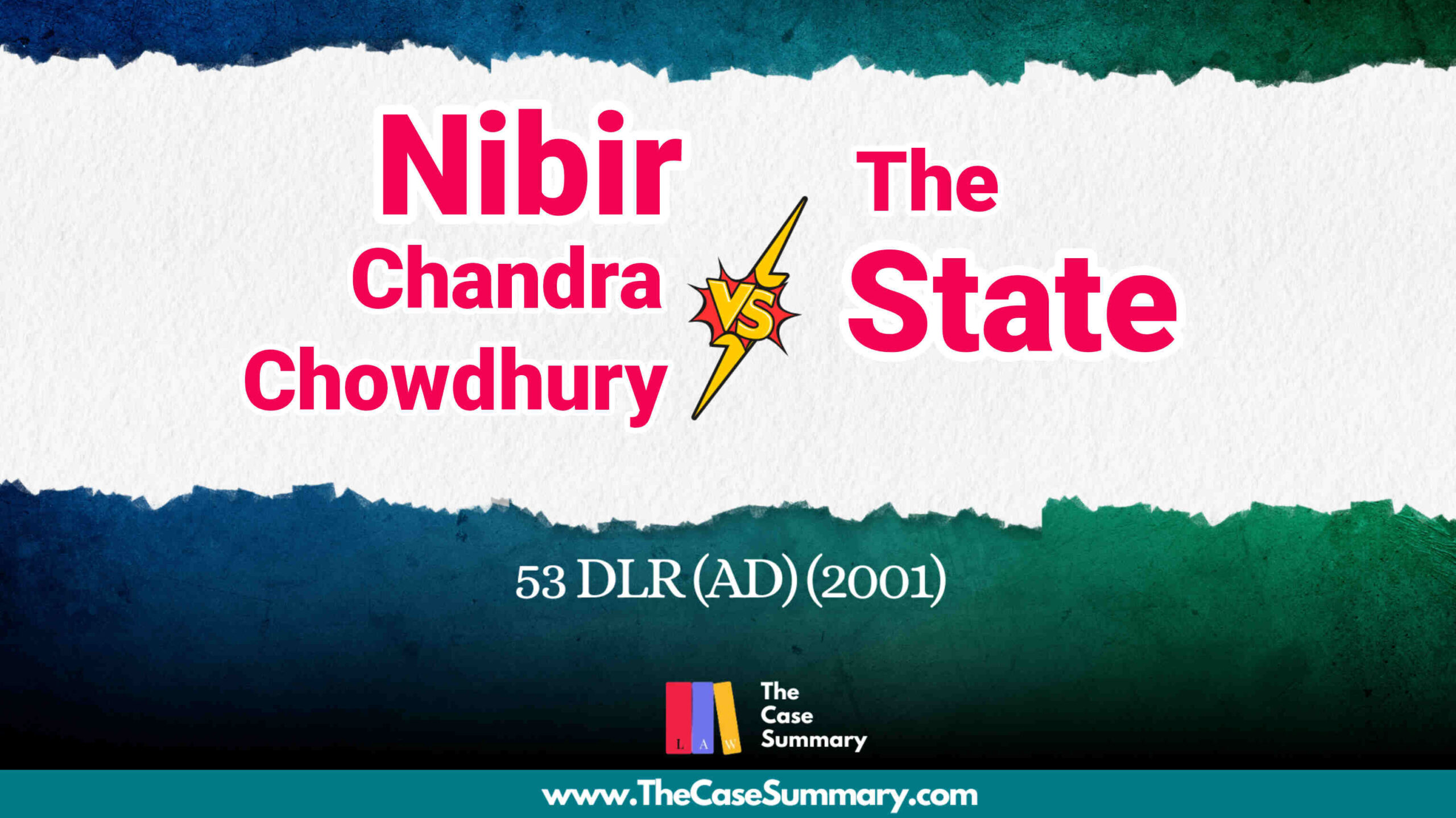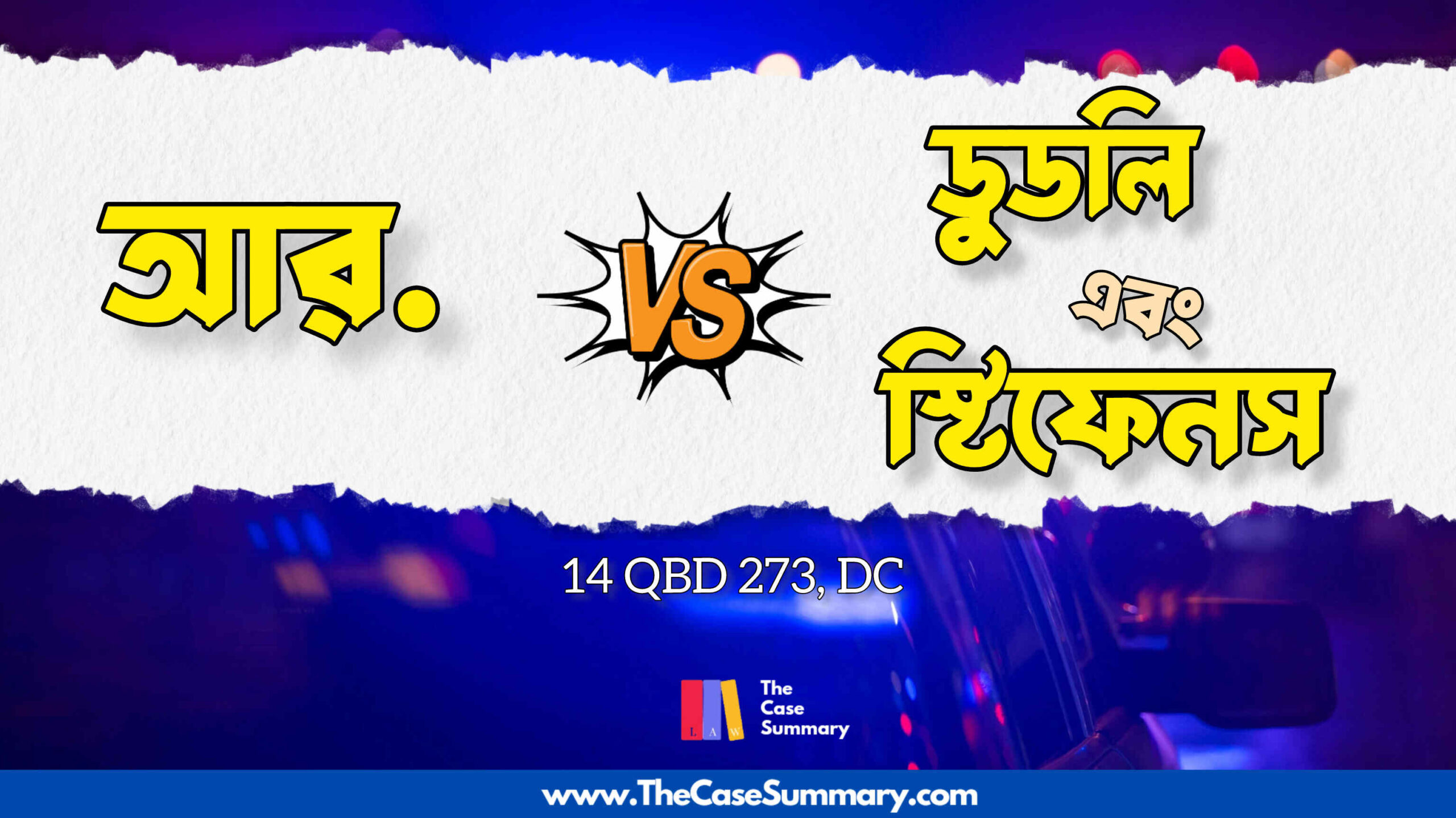R vs M’Naghten
Citation : (1843) 8 E.R. 718
Jurisdiction : United Kingdom
Plaintiff : R. (Regina/The State)
Defendant : Daniel M’Naghten (McNaughten)
Facts :
On the 20th day of January 1843, Edward Drummond, the secretary to the Prime Minister of the United Kingdom was walking through Whitehall, London to Downing Street. Suddenly, Daniel M’Naghten, a Scottish woodturner, approached him from behind. He fired a pistol point blank range into Drummond’s back. The police apprehended him as he was about to draw a second pistol. Drummond succumbed to his injuries 5 days later on January 25th.
M’Naghten’s actual target was not Drummond but the Prime Minister of the United Kingdom, Sir Robert Peel himself. Next day, when M’Naghten was brought before the trial court he defended himself by asserting that “the tories in my city follow and persecute me wherever I go, and have destroyed my peace of mind. They do everything in their power to harass and persecute me; in fact, they wish to murder me.” It became clear that he was suffering from paranoid delusions. Particularly a belief that the members of the conservative party were conspiring against him.
Issues :
1. Whether an individual who is laboring under any sort of delusion could be held accountable for his actions.
2. Whether an individual suffering from such delusion could be held criminally liable if they knew that the act was unlawful but still committed it due to an insane delusion believing that they were redressing a grievance.
3. What are the questions to be submitted before the jury when a person who is allegedly laboring under an insane delusion respecting one or more particular subjects or persons is accused of a crime and insanity is set up as a defense?
Arguments :
Plaintiff/Prosecution’s Arguments:
The prosecution argued that although M’Naghten claimed to be suffering from delusions, he was fully aware of his actions at the time of the crime. They emphasized that as he had consciously fired the pistol, he could distinguish right from wrong. His anatomy lecturer from Glasgow and his landlady were brought in as witnesses. All of whom testified that M’Naghten was sane capable of his actions.
Defendant’s Arguments:
The defense argued that M’Naghten had not been acting as a reasonable and responsible person due to his delusions. They produced witnesses from his hometown in Glasgow. They testified that M’Naghten was seen behaving strangely and talking about being persecuted and spied upon. In addition to his, expert medical professionals testified that M’Naghten’s delusions had surpassed his moral sense and self-control, which left him unable to comprehend the nature or wrongfulness of his actions. They argued that his conditions met the criteria for legal insanity.
Decisions :
Trial Court:
The court found M’Naghten not guilty by reason of insanity. He was found to be suffering from monomania, which made him fixated on one particular issue, which in this case was delusion of being persecuted. The judgement was given in favour of the defendant as medical evidence presented, remained unchallenged. Following the verdict, M’Naghten was put in a mental institution.
House of Lords:
The Decision was scrutinized both by the Parliament and the Queen, whose own assailant was claimed to be insane in 1840. In response to this judgement The House of Lords convened a panel of judges including Lord Justice Tindall and asked them several questions. The judges were requested to provide a clear authoritative definition of legal insanity and how the insanity defense should be applied in criminal trials.
Relevant Principle :
M’Naghten Rules: When a defendant pleads not guilty on grounds of insanity, he must satisfy the following test:
At the time of committing the act, it must be proven that:
1. The defendant was suffering from a defect of reason,
2. This defect of reason was caused by a disease of the mind, such that
3. The defendant either did not understand the nature and quality of the act, or, if he did, did not know that it was wrong.
If the court is satisfied that these conditions are met, the defendant may be acquitted on the grounds of insanity or unsoundness of mind. This test continues to serve as the foundation for the insanity defense in many jurisdictions, including Bangladesh, as reflected in statutes such as the Penal Code, 1860.
Relevant Laws :
- The Penal Code, 1860
- Section : 84
Author :
1. Raiyan Talukder
Note : The Case Summary is a platform by the law students, for the law students. We aim to summarize the facts and decisions of various important cases in both Bangla and English with utmost caution. However, this platform is in no way a replacement for going through the complete judgements by the law students and we discourage any learner from relying on case summaries alone. Thank you



